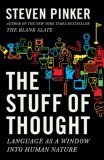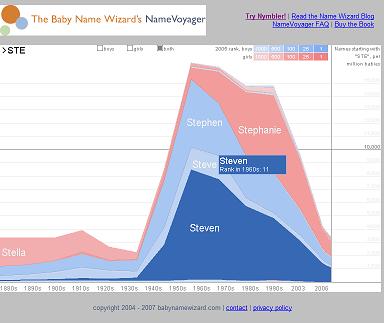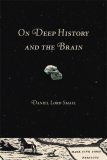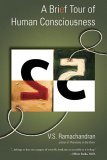
I’m nearly through reading Steven Pinker’s Stuff of Thought: Language as a Window into Human Nature . So far I’ve especially enjoyed the chapter on names, which includes discussion on sense vs reference in relation to meaning, a good summary of Saul Kripke’s Naming and Necessity
. So far I’ve especially enjoyed the chapter on names, which includes discussion on sense vs reference in relation to meaning, a good summary of Saul Kripke’s Naming and Necessity (see also Wikipedia), new words. and baby names.
(see also Wikipedia), new words. and baby names.
Pinker’s discussion of neologisms leads to a reflection on the categories of things we have words for:
‘Words tend to be reserved for whole entities (“rabbit,” not “undetached rabbit parts”), for stable qualities (“green,” not “green until 2020 and blue thereafter”), for natural kinds, for events that are terminated by a single change of state or a single goal, for artifacts with a function, and for actions with a salient cause, effect, means, or manner. And words are given to the players that have roles in the events we make assertions about, not to the assertions themselves. A sentence can be true or false, but a word cannot.
By these lights, interesting neologisms tend to fail precisely because they are interesting … because the coiner is really commenting on something rather than naming something.’ (p. 310-311)
Here are some more links related to Pinker’s discussion of names:
Project Steve from the National Center for Science Education
You can track the popularity of baby names at Baby Name Wizard’s NameVoyager (Java required). Below is a screenshot of names starting with “Ste,” including Stephen, Steven, Steve (and Stephanie):

A book referred to in the chapter:
A Matter of Taste: How Names, Fashions, and Culture Change by Stanley Lieberson
by Stanley Lieberson
See also this earlier post: Reading list for Steven Pinker’s ‘Stuff of Thought’
by Daniel Lord Smail (U of California Press, 2007)
 From the book description: “Daniel Lord Smail argues that, in the wake of the decade of the brain and the bestselling historical work of scientists like Jared Diamond, the time has come for fundamentally new ways of thinking about our past. He shows how recent work in evolution and paleohistory makes it possible to join the deep past with the recent past and abandon, once and for all, the idea of prehistory. Making an enormous literature accessible to the general reader, he lays out a bold new case for bringing neuroscience and neurobiology into the realm of history.”
From the book description: “Daniel Lord Smail argues that, in the wake of the decade of the brain and the bestselling historical work of scientists like Jared Diamond, the time has come for fundamentally new ways of thinking about our past. He shows how recent work in evolution and paleohistory makes it possible to join the deep past with the recent past and abandon, once and for all, the idea of prehistory. Making an enormous literature accessible to the general reader, he lays out a bold new case for bringing neuroscience and neurobiology into the realm of history.”








